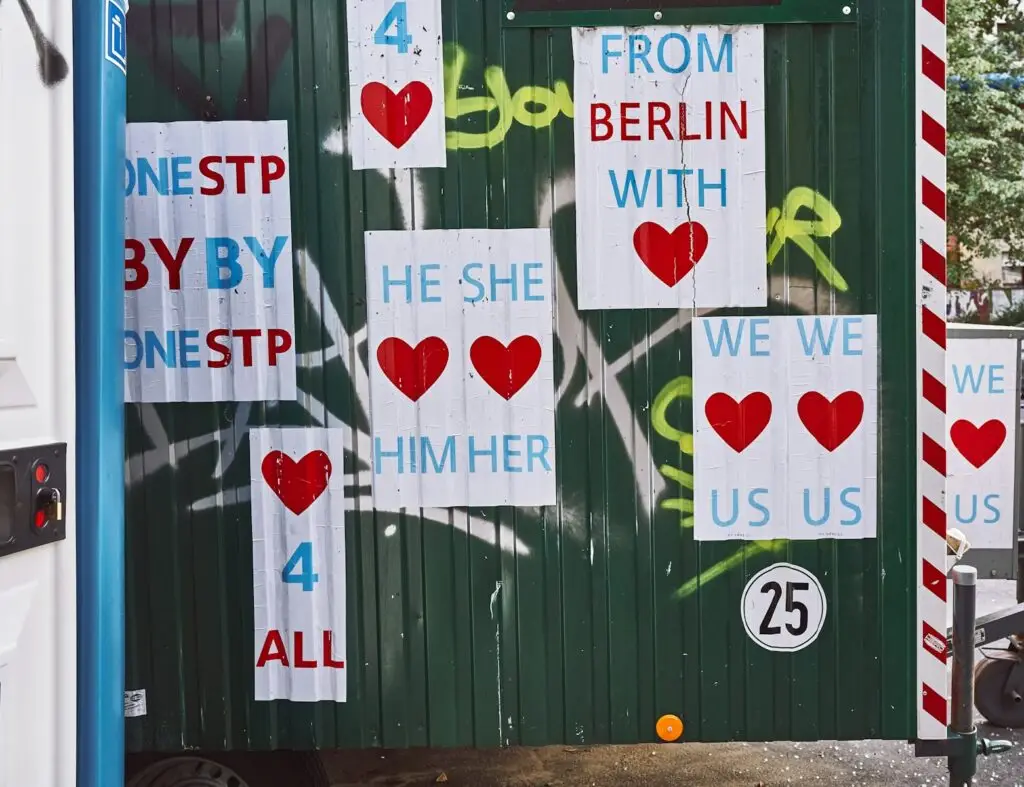Without a doubt, breakups can be a heart-wrenching and devastating ordeal that often leaves people feeling lost and confused. People’s reactions vary, with some romanticizing breakups. Interestingly, it’s common for some to rewrite history after a breakup to make it less painful. The question remains, why breakups are romanticized?
Why BreakUps Are Romanticized?
Some people also rewrite history after a breakup for a number of reasons. While some hold onto hopes of reconciliation, others idealize a past relationship because they aren’t ready to let go.
Fear of being alone and the isolation that often comes with it are common factors explaining why breakups are romanticized. Simply put, those who hang on often find it hard to cope. They struggle with the idea of not having that person in their lives or managing their lives on their own. To combat these fears, they choose to reinterpret experiences post-breakup. In fairness, though, being in a long-term relationship makes it hard for most to imagine facing the future without a partner. This is most relevant for those who rely on a relationship for emotional or financial support.
Further to what I just noted, another reason why breakups are romanticized is the uncertainty of what lies ahead. This, too, can be daunting, as many people question what will happen next. They also struggle to accept the sudden change in their lives. On top of that, the pain of losing someone you once cherished can be intense and debilitating. All told, this makes it hard to let go and move forward..
The bottom line is many people struggle because of their deep emotional attachment to a relationship. The memories shared, the experiences had, and the bonds formed with another person all make it challenging to walk away and start anew. The issue of people struggling to see themselves as separate from their former partners is a topic I plan to explore more fully in a future post.
Now, let’s explore seven reasons why breakups are romanticized in greater depth. We’ll also look at the process of grieving a relationship and the importance of coming to terms with the end of a romantic connection.
#1: Society's Role Encouraging People to Rewrite History After a BreakUp
Despite the emotional turmoil that breakups cause, they are often portrayed positively in media and popular culture. The media frequently presents breakups as a monumental turning point in one’s life. It’s presented as a time when individuals can reflect on themselves and learn valuable lessons with the endpoint being personal growth. Think about all the bandwidth in online discussion groups devoted to dissecting the latest celebrity breakup or relationship issues. And for this reason, this is why breakups are romanticized.
This narrative casts breakups as a case of self-discovery and growth (in other words, a cover for its time to move on), which is romanticized and glorified. From this perspective, going through a breakup is considered a rite of passage in becoming a fully actualized person (or onto the next adventure).
Furthermore, popular culture, including movies and social media, often depicts romance and heartache as synonymous in ways that can skew people’s perceptions of love. These exaggerated representations can lead people to believe that heartbreak is glamorous or that pursuing a past relationship is the epitome of romantic gestures.
Frankly, this explanation makes me want to shake my head because in most breakup situations, the heartache is messy and painful, with no quick fixes or easy solutions. More importantly, the chances of reconciliation generally do not play out well statistically. On the other hand, movies love to portray rekindling a past flame as romantic and filled with great sex. In reality, though, false hopes for a reconciliation can often lead to more complications and hurt feelings.
Challenging and recognizing these misconceptions is when healing after a breakup can be possible. Addressing why breakups are romanticized is part of a personal journey that requires patience and self-compassion. By understanding the influence of societal norms, we can begin to disassemble the illusions surrounding breakups and embrace the raw, honest emotions that come with finally being able to let go.

#2: Redefining Relationships After a BreakUp With Nostalgia
Nostalgia plays an influential role in romanticizing breakups. This is because it encourages people to focus on the positive aspects of the relationship. At the same time, having a nostalgic view glosses over the negative. When looking back, memories can become idealized, like looking through rose-colored glasses. When this happens, it becomes easier to reminisce about the happy moments instead of the reasons the relationship ended.
This selective memory can cause people to rewrite history after a breakup and create a longing for the “good old days.” It’s human nature to hold onto what makes us feel loved, special, or understood. This is why people cling to these positive moments when a relationship ends.
Additionally, nostalgia can be comforting during emotional upheaval. When dealing with the pain and uncertainty of a breakup, thinking about the past can feel safer than facing the reality of loss.
People may subconsciously choose to alter the narrative after a breakup by focusing on times they felt closest to their ex-partner. This makes it easier to cope with the emptiness left behind. In this way, romanticizing the past becomes a defense mechanism—a way to preserve the emotional connection while softening the harshness of the present. This is another reason why breakups are romanticized.
#3: BreakUps Are Romanticized by Glamorizing the Ended Relationship
Idealizing the past is a common way people romanticize breakups because it lets them create a version of the relationship that feels more perfect than it was. Just as with nostalgia, this, too, involves rewriting history.
The tendency to idealize a relationship can stem from a desire to preserve the relationship’s emotional significance. In hindsight, individuals might amplify their partner’s positive traits, overlook red flags, or minimize the conflicts they once faced. By mentally reworking the past, they turn the relationship into an idyllic memory. By doing so, the imperfections that led to the breakup are minimized or forgotten altogether.
This type of idealization often serves as a way to avoid fully confronting the pain of loss. Rather than accepting that the relationship may have been flawed or that the breakup was necessary, it can feel easier to focus on an imagined version of what could have been.
Reframing the past after a breakup can lead to a false sense of longing. It’s a place where the relationship is remembered not as it was. Instead, it’s recalled as a dreamlike, ideal experience. Romanticizing in this way offers comfort, helping people avoid the emotional complexity of letting go and moving forward.
#4: BreakUps Are Romanticized for Emotional Closure
A desire for emotional closure is yet another reason why breakups are romanticized. In this instance, it provides a way to make sense of the emotional turmoil that follows the end of a relationship. By romanticizing the relationship, individuals create a narrative where the breakup becomes part of a meaningful story. For them, this is more comfortable than recalling the pain or chaos. This reframing offers a sense of emotional resolution, making coping with feelings of loss and disappointment easier.
Romanticizing relationships after a breakup also helps people feel the relationship was significant and worth the emotional investment, even if it ended. Viewing the past relationship through a more positive lens allows them to believe that the experience contributed to their personal growth or emotional journey.
Serving as a coping mechanism that brings a sense of finality, this is why breakups are romanticized by many. The reason is that it offers emotional closure by attaching purpose and meaning to the pain. This sense of closure can be comforting, allowing them to emotionally process the breakup without fully accepting its harsh reality.

#5: Why BreakUps Are Romanticized? To Avoid Its Pain
No one wants or seeks out painful experiences. It makes sense that avoiding the pain of a breakup is a key reason why people romanticize them. In this instance, this is when the tendency to rewrite history after a breakup comes into play. By spinning their breakup more positively, it allows people to protect themselves from the raw emotional distress that comes with the end of a relationship.
For many, confronting a breakup’s feelings of rejection, loneliness, and sadness head-on can be overwhelming. By focusing on positive memories and idealizing the relationship, people create a mental buffer that shields them from the full impact of those painful emotions that accompany a breakup. Romanticizing past relationships after a breakup becomes a way to cope by transforming a hurtful experience into something more bearable.
However, avoiding pain can also prevent individuals from facing the hard truths that contributed to the breakup. It saves many from acknowledging the real reasons behind the separation—whether it’s incompatibility, trust issues, or growing apart. All of these require emotional vulnerability, which can be deeply uncomfortable and requires a degree of self-reflection.
Instead, some may choose to dwell on the good times, blurring out the negative aspects of the relationship to avoid the sting of loss and regret. Romanticizing, in this way, becomes a form of emotional self-protection. It allows people to bypass the painful reality and instead linger in a more comforting version of the past, and explains why breakups are romanticized.
#6: Hope for Reconciliation is Why BreakUps Are Romanticized
I briefly touched on some people’s tendency to hold out for reconciliation. Now, let’s explore this subject more deeply..
When someone still harbors feelings for their former partner, they may selectively focus on the best moments of the relationship. They do this by inflating its significance and imagining that the breakup was just a temporary setback.
By idealizing their time together, they create a narrative in which the relationship is worth saving. It also makes the challenges that led to the breakup either minimized or seen as fixable. This romanticized view supports the belief that, with time or effort, the relationship can be reignited.
Hope for reconciliation is often rooted in a reluctance to let go of the emotional bond they shared with their ex-partner. Romanticizing helps keep that connection alive, making it easier to imagine a future where they’re back together and the relationship is better than ever.
This optimism also acts as a coping mechanism by offering comfort and a sense of control during uncertainty. Holding onto the hope of reconciliation helps people avoid accepting the finality of the breakup. It allows them to believe there’s still a chance for a happy ending by romanticizing past relationships after a breakup. And this is one other reason why breakups are romanticized.
#7: Maintaining a Sense of Identity by Romanticizing Past Relationships After a BreakUp
Maintaining a sense of identity often plays a significant role in why people romanticize breakups. This is particularly true when their identity has become intertwined with the relationship. Over time, people may begin to define themselves through their connection with their partner and, less so, as an individual. When that relationship ends, it can feel like a part of their identity is gone. .
People may romanticize the relationship to preserve that sense of self. They do this by elevating their ended relationship to a status where it continues to feel central to who they are. Once again, by idealizing their role in the relationship, they can maintain a narrative that preserves their sense of identity as part of something meaningful.
This form of romanticization helps individuals avoid the uncomfortable process of redefining themselves post-breakup. For some, it’s destabilizing to let go of a relationship that once played a large part in their daily life, decisions, and self-concept. Romanticizing allows them to hold onto the past version of themselves, where they feel connected, loved, and defined by their role in the partnership.
Preserving their relationship helps people cope, and because of this need, it explains why breakups are romanticized. It postpones facing the complex task of rediscovering who they are outside the relationship. By keeping the idealized version of the relationship alive, they temporarily avoid the identity crisis that can come with moving on.

What Happens When the Bubble Bursts and Romanticizing Your Relationship Ends?
When the romanticization bubble bursts, people generally face the harsh reality of their breakup. The idealized version of the relationship they held onto shatters. They now have to deal with the full weight of the relationship’s flaws and the reasons behind the breakup.
Coming to terms with why breakups are romanticized can bring a flood of emotions—grief, disappointment, anger, or regret—that had been suppressed while they were focused on romanticizing the past. The protective layer of nostalgia or idealization fades. It leaves people vulnerable to the raw pain they had been avoiding. The breakup, which once seemed like a temporary setback or a romanticized chapter, now feels final, and some may feel blindsided by the truth they had been trying to avoid.
After Romanticizing Past Relationships After a BreakUp Ends: What Then?
The pain and grief felt after the romanticization bubble bursts open the door to letting go and moving on. It begins with embracing the reality of the breakup and allowing oneself to fully process the emotions that come with it.
The starting point is accepting the relationship has end and understanding why breakups are romanticized. It’s also about releasing any lingering hopes for reconciliation or idealized versions of the past. It’s essential to give space for sadness, anger, or even relief and acknowledge these emotions as part of the healing process. In that way, the urge to idealize former relationships post-breakups will come to an end.
Journaling, talking to friends, or seeking professional support can help you navigate these complex emotions. Letting go also means redefining one’s sense of self outside the relationship and focusing on personal growth and future possibilities.
Moving on requires building a new routine that no longer revolves around the former partner. This can include rediscovering old hobbies, creating new goals, or fostering more profound connections with friends and family. It’s about reclaiming independence and creating a fulfilling life without a relationship.
Gradually, the emotional attachment to an ex-partner and the relationship subsides, allowing space for new experiences and relationships. Moving on doesn’t mean forgetting the past. Instead, it means meshing it into one’s life to promote growth and happiness.
Wrapping Up Why BreakUps Are Romanticized
As you move through the healing process, it’s important to acknowledge the tendency for some to romanticize past relationships after a breakup. It may seem tempting to recast a relationship into something ideal. However, actual growth comes from accepting the reality of the situation. By letting go of these idealized notions, you can make room for authentic healing and personal development.
As you continue your journey, embrace the raw emotions, messy moments, and uncertainty that come with a breakup. True strength lies in facing vulnerabilities head-on and emerging more whole on the other side. Focus on the genuine growth and transformation stemming from this challenging chapter of your life.


